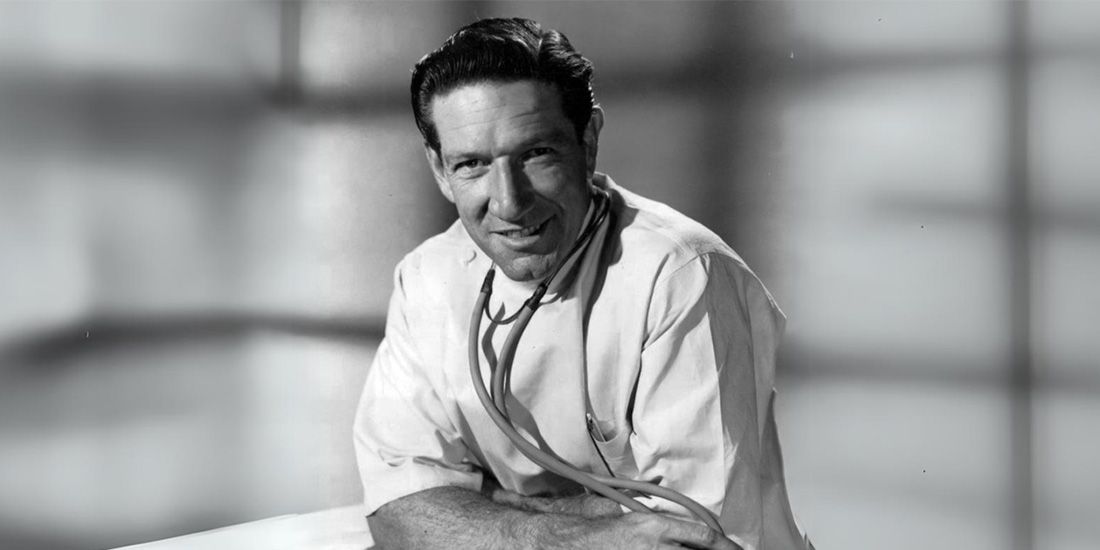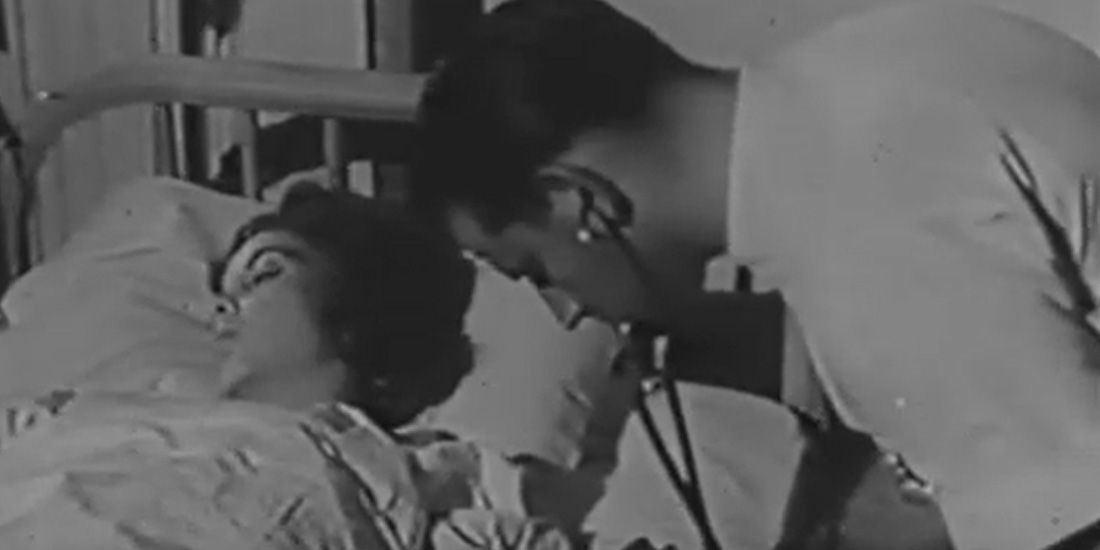
Sometimes, a viewer wants to see more physicians and less philandering. Or, perhaps, one might want to watch a bite-sized bit of medicinal intrigue without needing to watch over 300 hours of prior episodes. In that case, it’s time to find the time-travel button and rewind to September 1954, when NBC first introduced its ground-breaking medical drama Medic.
NBC’s Medic Is an Important Part of Television History
- 59 episodes of Medic were aired. However, when Timeless Media Group released a DVD collection, only 44 episodes were included.
- The show’s principal writer, James E. Moser, had a respectable history in the entertainment industry. Before Medic, he had written radio content for Dragnet and Doctor Kildare.
Now, Medic was not the first televised medical drama. That title belongs to City Hospital, an ABC and CBS series that ran from 1951 to 1953. The first serialized “pop culture” addition to the genre is the Doctor Kildare film series, which began in the 1930s. However, Medic is the first of these early prototypes to emphasize its medical accuracy. Medic may not be as grisly as today’s medical shows, but it was once a boundary-pushing gem.
In a time when I Love Lucy was hiding the star’s pregnancy to appease uptight audiences, Moser’s vision had a bluntly stated goal. As stated in its premiere’s introductory sequence, Medic celebrated a fact that many shows of its time did not: “There’s excitement enough and triumph enough in truth.” Following the 1955 debut of “Flash of Darkness”, Medic gained a second life as a recruiting tool. Civil leaders praised and credited the show for a hefty increase in volunteers for America’s Civil Defense. Such a phenomenon would later be kick-started by films like Threads and The Day After in the 1980s.
Medic’s Self-Contained Episodes Do Not Follow an Overarching Plot
- Over Medic’s run, it was nominated for 11 Emmy Awards. It won two. The first, Best Direction of Photography, was awarded to Lester Shorr for his work on “I Climb the Stairs”. Later, “Black Friday” earned the award for Best Cinematography for Television.
- The show’s original theme music was composed by Victor Young. Later, Edward Heyman added lyrics. This new song, dubbed “Blue Star”, would gain widespread popularity.
Medic respects the audience’s time. It understands that not everyone has the desire to see a medical show that doles out an ever-evolving story. True, this practice was fairly standard at the time. Many shows of the era, famously including The Twilight Zone, operated as anthologies; Medic is no different. Not surprisingly, it also lacks most of the hot-and-heavy romance that Grey’s Anatomy inadvertently typified within the genre. But what was once old eventually becomes new.

ABC’s Doctor Odyssey shares more than just a creator with 9-1-1; it’s also employing the same narrative ideal.
As modern medical dramas push further and further into soap opera territory, Medic presents a refreshingly simple alternative. Each bite-sized entry is a new mystery. The show even offers an entirely different setting. Some of its episodes, including “Black Friday”, which revolves around doctors’ valiant attempts to save Abraham Lincoln, are set firmly in the past.
Of course, not all the content in Medic is necessarily accurate. While its episodes once showcased state-of-the-art scientific discoveries, over half a century has passed since its debut. Medical advances have since avoided some — but, surprisingly, not all — of Medic’s advice. It’s probably not a great idea to model any emergency response tactics on NBC’s landmark show.


